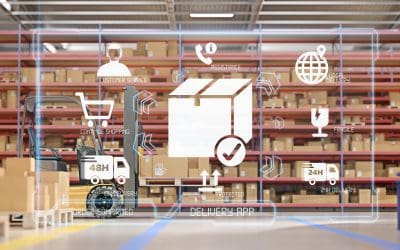
Delivery managers are becoming more and more relevant to the delivery scene; because of this, deliveries are becoming more efficient and cost-effective than ever. A delivery manager has many responsibilities and roles to fill for a delivery company to succeed.
Responsibilities of a delivery manager
In general, delivery managers are responsible for projects and products using agile methods. To ensure maximum efficiency, they work closely with product managers and other involved parties, such as drivers and mechanics. These individuals are specialists equipped with the necessary skills to handle and ensure seamless deliveries, and even complete lesser known tasks that affect their supply chain (for example digitizing an already established business). Some of their regular responsibilities include:
- Delivering shipments on time with the available allocated resources
- Conducting particular tasks such as backlog grooming, sprint planning, etc.
- Maintaining effective contact between the teams and the founders
- Creating an effective working culture in conjunction with an efficient team performance model
- Coordinating, documenting, and defining priorities and requirements
- Developing a definitive understanding of every project to know the scope of required service delivery
- Dispatching deliveries
- Communicating delays, reports, and more with drivers and customers
Delivery managers vs dispatchers
When it comes down to it, these two play very similar roles. However, delivery managers tend to focus on the larger scope of the entire delivery process whereas dispatchers are responsible for putting together routes and scheduling them out. Most of the time companies opt to have their delivery managers or dispatchers perform both roles though.
Do you need a delivery manager?
To put it simply: yes. If your company is making deliveries on a regular basis, having a delivery manager is an essential step to ensure seamless deliveries and positive customer experiences. Without one, these responsibilities will fall on different employees with other obligations which will lead to delivery management being put on the back burner. With online shopping and the demand for fast deliveries rising everyday, offering an exceptional delivery experience is the only way your company can stay competitive.
Simplify deliveries with innovative software
Thanks to advanced technology like that at Elite EXTRA, the responsibilities of a delivery manager can be greatly reduced. Software, such as their Routing and Dispatch software, automates many of the processes which had previously needed to be done manually. This reduces the chances for errors while simultaneously freeing up time for the delivery manager to focus on greater tasks. Furthermore, it opens up capabilities like real-time tracking and communication that allow delivery managers further insight into their delivery processes; they can use this information to improve their methods and future deliveries. Learn more about how you can implement this technology and streamline your deliveries by contacting Elite EXTRA today.
Conclusion
In this day and age, having a delivery manager is crucial for the success of your business. The delivery manager on your team can help you pinpoint current shortcomings in your deliveries, foresee future risks, and avoid any future delays or disruptions. Moreover, delivery managers in a company ensure the founders can focus on their own responsibilities and the vision of the company. Most importantly, it will keep your customers happy and even improve their satisfaction. There is no arguing the facts; if you don’t have a delivery manager yet it is time to start looking for one!
Sources
Explaining the role of a Delivery Manager
https://medium.com/practical-agilist/the-delivery-manager-role-its-totally-a-thing-9a9872f7e9c1
https://www.bluecart.com/blog/delivery-manager-roles







